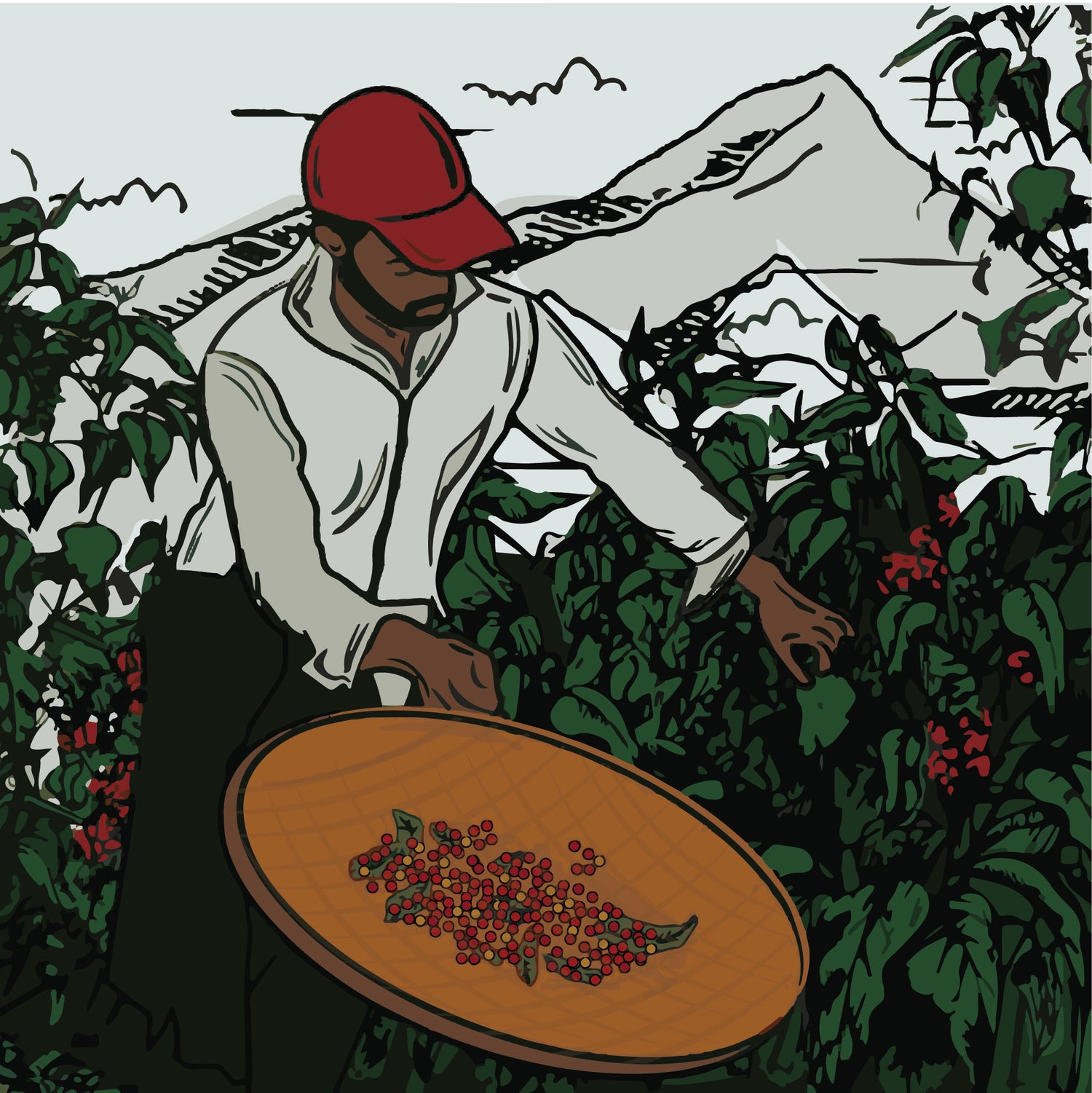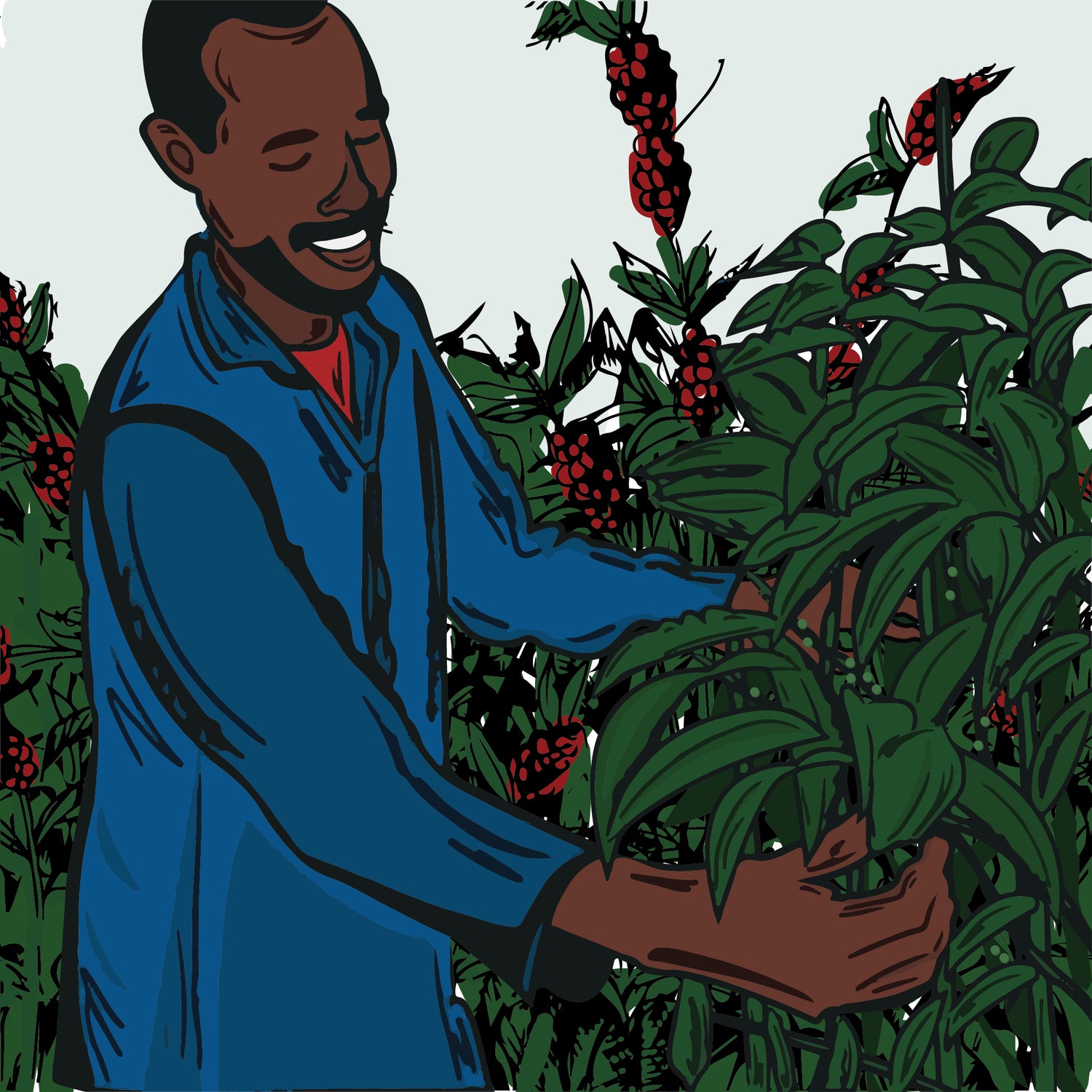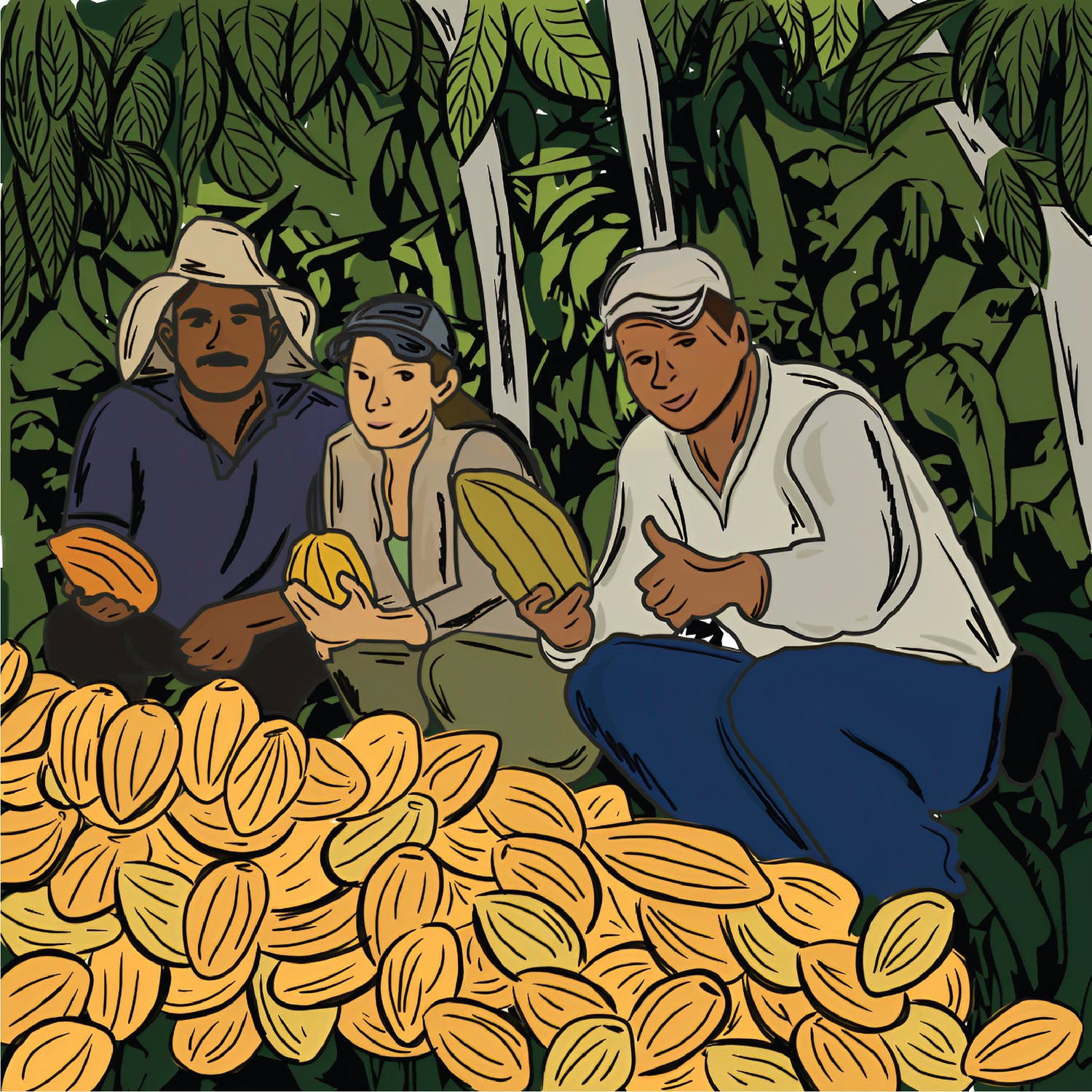FARMERS OF GRAO

BRAZIL
Santa Inácia is a farm with a total of 596.47 hectares and is located in the south of Minas Gerais. The farm produces approximately 5000-6000 bags of coffee per year, with at least 60% specialty coffees. It is certified by UTZ and Certifica Minas, and there is a project for the acquisition of Rain Forest and Fair Trade certification.
This Absolutely beautiful Brazilian coffee bean is a natural process beauty and it will give you an amazing cup of classic coffee! Here’s the catch: it tastes deep but without the burnt flavor of dark roasted coffee.
The name cerrado translates as closed, and the region remained so until the 1960s, when farmers began treating the soil. Over the years, the grasslands were transformed into agricultural and pasture land. Brazil Cerrado coffee is grown at altitudes of 900 1,250 meters above sea level. Plantations are large, ranging from 100 to 3,000 hectares, with tremendous output. An homogenous climate allows for extensive control at all levels of the production. Additionally, the flat topography enables the use of efficient mechanical harvesting.
Most coffees are processed using natural and pulped natural processes, meaning the coffee is dried with all or a large amount of fruit on the bean. This process imparts sweet, fruity notes and produces a creamy body. The result is a well-balanced, nutty, chocolatey profile with a low, citric acidity and smooth body — a universally enjoyable cup that has become famous the world over.
Farm: Fazenda Santa Inacia
Altitude: 930 to 1,428 meters
Q Grader Score: 85.5
Cupping Notes: Nutty, Cocoa, Almond, Chocolate.
Processing: Natural
Varietal: Mundo Novo

ETHIOPIA
Yirgacheffe is arguably the most well-known coffee-producing region, and rightfully so. Its coffees are full of sweetness, balance, and depth, and this lot is no exception! These specialty beans are sourced from the Adado Co-op, a group of family-owned farms within the Gedeo Zone of southwestern Ethiopia. Adado Co-op is a part of the Yirgacheffe Coffee Farmers Co-op Union (YCFCU), an organization established in 2002 to provide support for sustainable coffee practices in the Gedeo ethnic region of Ethiopia. As of now, YCFCU is made up of twenty-six co-ops throughout the area.
These Ethiopian Heirloom beans are harvested between October and December at 2000 meters, naturally processed and then dried on raised beds.
This coffee is sourced from family-owned farms organized around the Adado Cooperative located within the coffee region of Yirgacheffe in the Gedeo Zone in Ethiopia. The Adado Cooperative currently has 1,128 members. In 2002, the cooperative joined the Yirgacheffe Coffee Farmers Cooperative Union (YCFCU), an umbrella organization established in 2002 to support a sustainable coffee supply from cooperatives in the Gedeo ethnic region of Ethiopia. There are twenty-six other cooperatives affiliated with the YCFCU totaling more than 45,000 members.
Ethiopian Yirgacheffe Kochere coffee is an exquisite, floral bodied medium roast. With a predominantly lemon forward flavor, this particular Yirgacheffe coffee mellows into a very balanced and well rounded cup. It has less acidity than other African coffee offerings and proves to be an excellent choice for almost any coffee lover.
Within the popular Yirgacheffe growing region of Southern Ethiopia you will find the small woreda or district called Kochere. Kochere provides communal washing stations for local farmers to process their coffee after the harvest. This African district is well known for producing high-quality Ethiopian coffee beans - where the acidic, mineral dense soil and soaring altitudes make for a perfect coffee growing micro-climate.
Farm: Yirgacheffe Adado – Cooperative
Altitude: 1789–2160 meters.
Q Grader Score: 86.5
Cupping Notes: Almond, Dried Berry and Cane Sugar, Round Body.
Processing: Natural
Varietal: Heirloom

COLOMBIA
A small town called Herrera, located in the department of Tolima, is home to 58 members of the Association of Specialty Coffee Growers of Alto Saldana. The average farm size is only 4.5 hectares. They consistently achieve high cup scores and recognitions for their coffees.
Colombia’s, and in particular Tolima’s, closeness to the equator and the diversification of microclimates creates an almost continual harvest throughout the year, guaranteeing fresh flavors and character every time. This is one of the reasons Colombian coffee is readily available all year round.
https://www.sustainableharvest.com/blog/toloma-one-of-colombias-coffee-jewels
Farm: Tolima
Altitude: 1880 – 2000 meters.
Q Grader Score: 87.5+
Cupping Notes: Fruity, Orange, Plum, Round body.
Processing: Washed
Varietal: Castillo, Caturra
